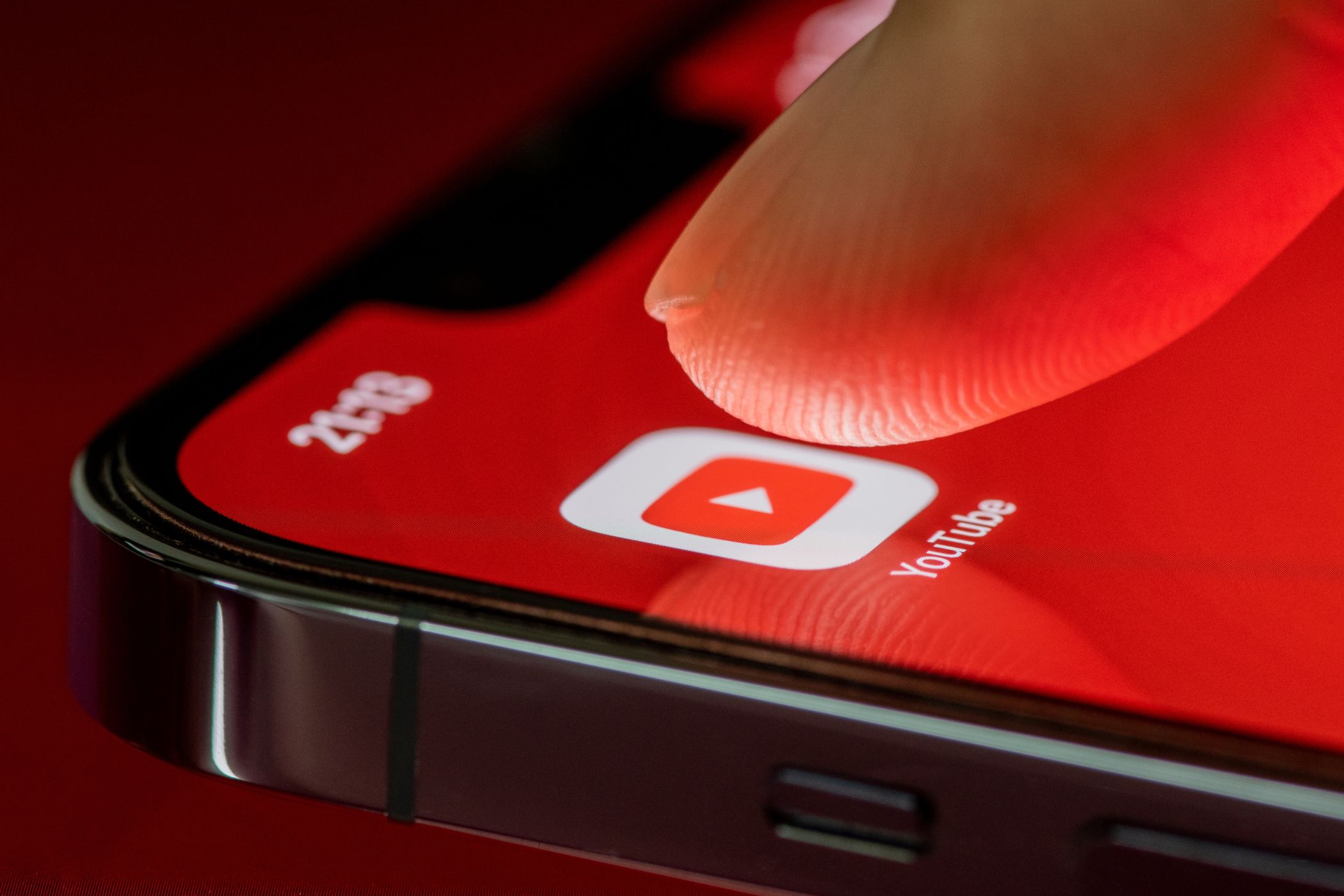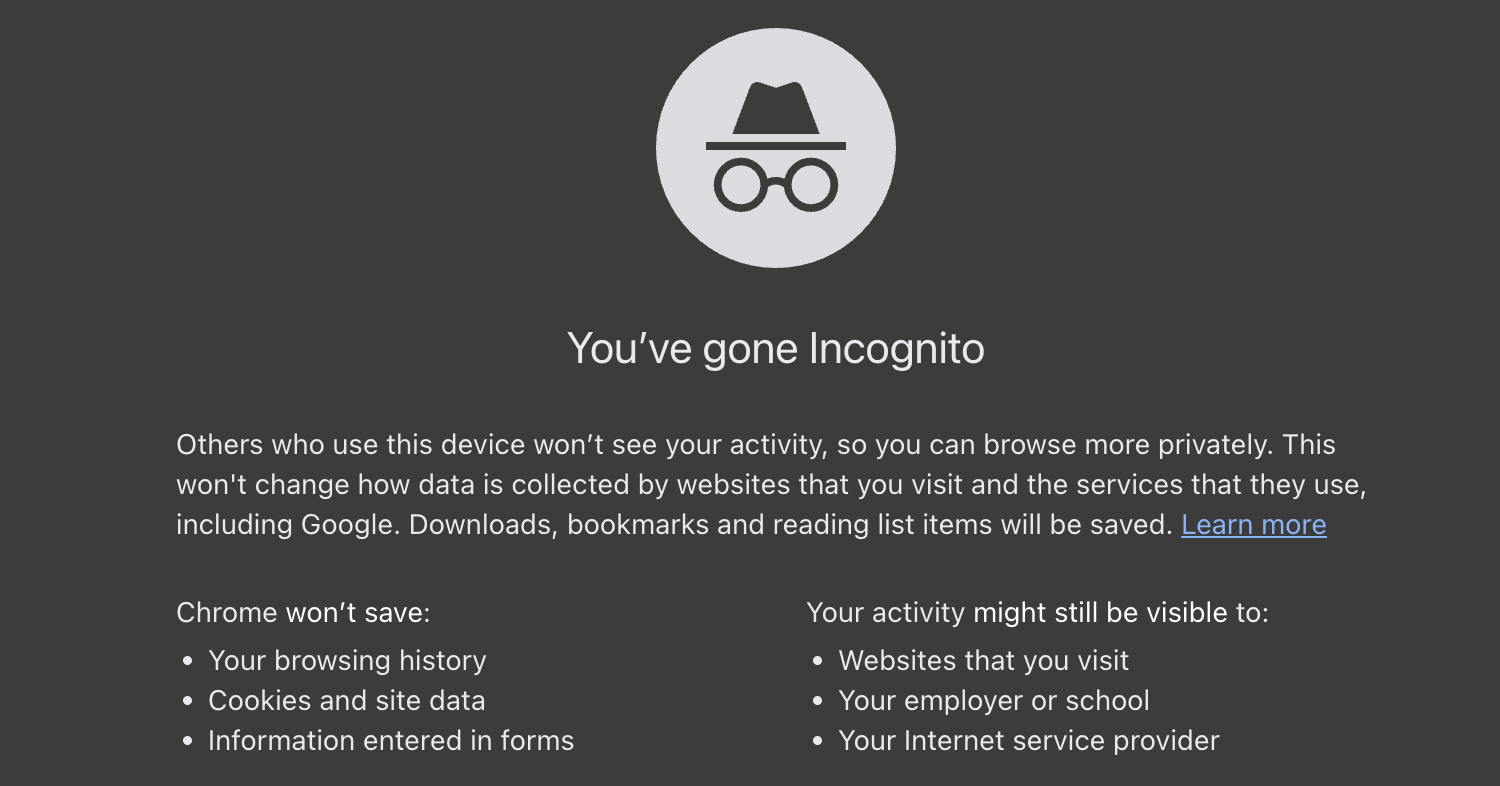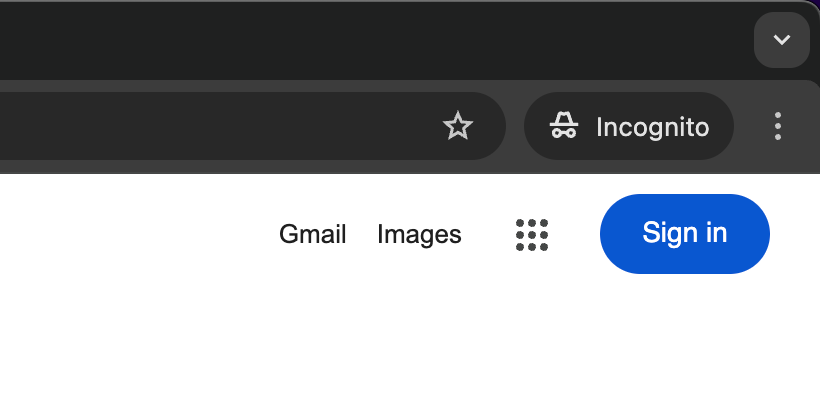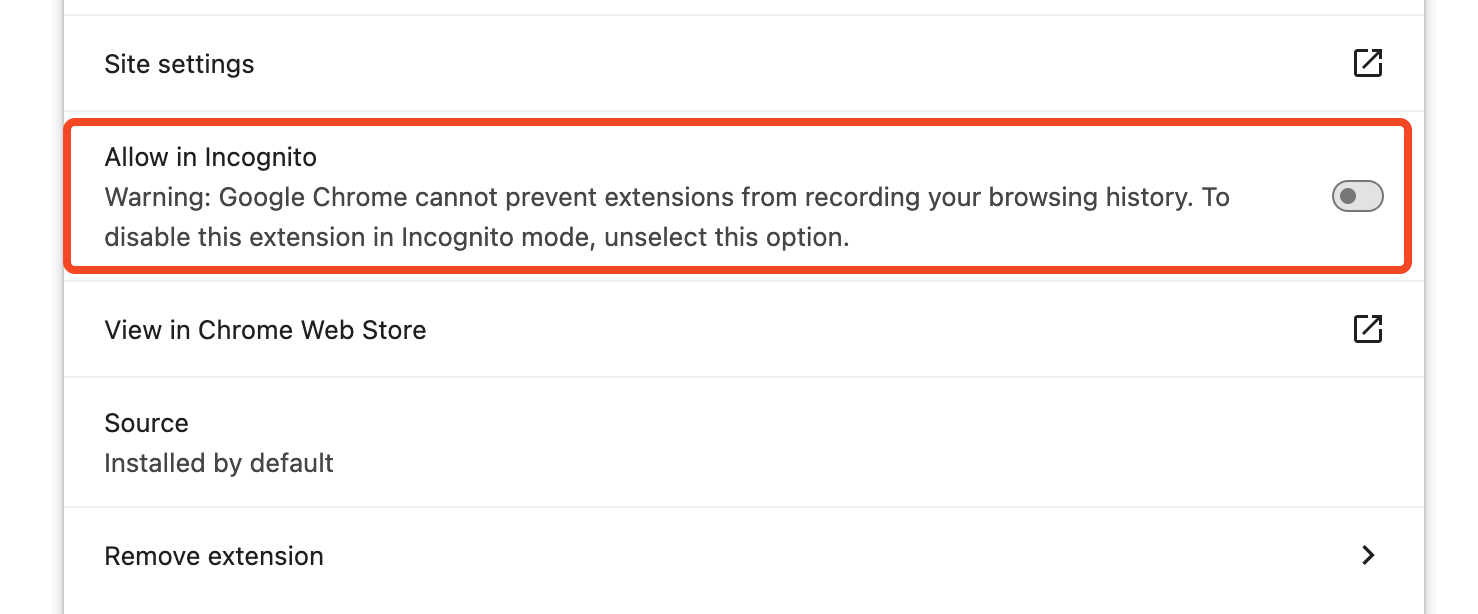Summary
- Use Incognito mode to avoid saving your search history and cookies, making it valuable when browsing on shared or public devices.
- It’s useful for viewing sites while logged out to avoid recommendations being tailored to your browsing history.
- Incognito mode doesn’t make you anonymous, encrypt your connection, or protect against malware, so use caution.
Every browser offers an incognito mode that provides an extra level of privacy when you’re browsing the web. However, it might not be quite as effective as you think it is. There are times when it’s useful—and times when it’s no use at all.
Use It When You Don’t Want to Save Your Browsing History
The most widely known benefit of Incognito mode (or Privacy mode or InPrivate mode, as it’s also called) is that it doesn’t save your browsing history. This won’t be a major requirement for most people, but if you share access to a computer, whether at home, at work, or if you use a public machine in a library, then it can be invaluable.
Incognito mode doesn’t save your history or cookies and doesn’t keep you logged into sites. It essentially wipes the browser clean of all traces of your browsing session as soon as you shut it down.
It’s Useful for Viewing Sites Logged-Out
Your browser isn’t the only thing that keeps a record of the websites you visit. Google, for example, saves every one of your searches when you’re logged into your Google account.
Again, this isn’t a big deal in most cases. But there will undoubtedly be times when you search for things you don’t want to save to your Google record. You can clear your Google search history, but it’s easier not to save it in the first place.
Incognito mode lets you view any site while logged out. This might be Google, and it could also be shopping sites, social networks, or anything else. It also makes it convenient if you want to log in to a different account, such as a second social media account that you only use occasionally and temporarily.
Use It to Not Ruin Your Recommendations
The main reason I use Incognito mode is for YouTube. If I’m doing a one-off search, like for a guide on how to replace the washer on a faucet, I go incognito because I don’t want YouTube recommending similar tutorials for the next six months. It’s so easy to break the recommendation algorithm if you aren’t careful.
The same applies when clicking YouTube video links on Reddit that I don’t want to be part of my profile, and when searching for random products on Amazon.

Related
Sick of Bad YouTube Recommendations? Here’s How to Get Better Video Suggestions
See more of what you like, and less of what you don’t.
It’s widely thought that some comparison websites, especially in fields like travel and flights, will show different (and higher) prices to customers based on what they’ve been searching for on the site.
By going incognito when using these sites, they can’t track you. If you do your research today and then visit again tomorrow, the site will see you as a different person each time and won’t be able to adjust its prices. You do need to remember to stay logged out when browsing, though.
It’s Useful When You Need to Quickly Disable Your Extensions
I use a lot of browser extensions but sometimes I need to disable them to view certain sites. By default, extensions don’t run in Incognito mode. Rather than delving into the settings to switch off an extension temporarily, opening a private tab has the same effect. It’s more convenient because you don’t need to remember to turn them back on again, either.
Where Incognito Mode Isn’t Useful
Incognito mode isn’t always useful though, and there are a few areas where it doesn’t offer you any help at all.
When You Want to Be Anonymous
Browsing in Incognito mode does not make you anonymous. Although your searches won’t be saved to your browser history, others will be able to see your activity.
Your ISP can still see which websites you visited; those sites and services can see your IP address, which is your device’s location on the network; and other people who run the network, such as your employer, will also be able to see the sites you’re visiting. So don’t think you can switch into Incognito mode and start browsing job sites without your boss finding out.
When You Want to Encrypt Your Connection
Incognito mode doesn’t add any extra encryption to your internet connection. Most sites now use HTTPS, so your connection is encrypted by default. But if you’re browsing on public computers and you want an extra layer of security, Incognito mode won’t help. In these cases, you should use a VPN instead.
When You Want to Avoid Malware
Finally, there’s a common misconception that private browsing makes you safer online. This isn’t true. Put simply, when it comes to malware, Incognito mode offers zero benefit whatsoever. You still need to maintain the same safe browsing habits that you do any other time.
Incognito mode is useful, but its usefulness is limited and often overstated. Its protection begins and ends on your computer or your phone. It’s perfect when you don’t want to save cookies or a browsing history, or to view sites while not logged in.
But it offers no protection other than that. It doesn’t make you anonymous, and there are much better ways to stay safe online.







